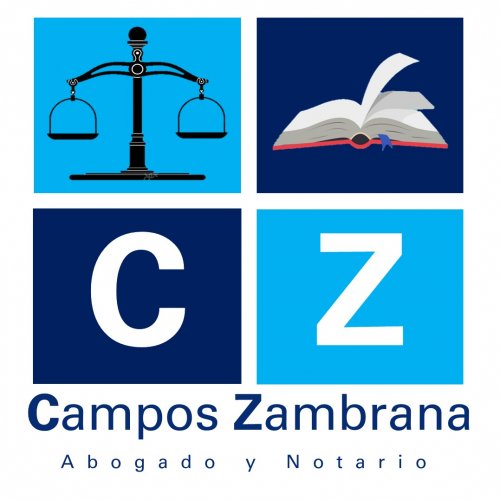Best White Collar Crime Lawyers in Nicaragua
Share your needs with us, get contacted by law firms.
Free. Takes 2 min.
Or refine your search by selecting a city:
List of the best lawyers in Nicaragua
About White Collar Crime Law in Nicaragua
White collar crime in Nicaragua encompasses a range of non-violent crimes committed for financial gain. These crimes typically involve deceit or breach of trust and are perpetrated by individuals, businesses, or government officials exploiting their occupational roles. Common examples include fraud, embezzlement, bribery, and money laundering. The legal framework governing white collar crime in Nicaragua is designed to safeguard the financial integrity of the private and public sectors, and it is enforced by various legal and regulatory authorities.
Why You May Need a Lawyer
Legal assistance may be necessary in several scenarios involving white collar crime. Individuals or businesses accused of such offenses may require defense lawyers to navigate the complex legal landscape and protect their rights. Victims of white collar crime might need legal help to seek restitution or damages. Furthermore, corporate entities may engage lawyers for compliance advice to prevent regulatory breaches. A lawyer’s expertise can also be critical in investigations, audits, and negotiations concerning white collar crime allegations.
Local Laws Overview
In Nicaragua, white collar crimes are primarily governed by the Penal Code and specific anti-corruption laws. The legal system recognizes the severity of these crimes and institutes stringent penalties, which can include significant fines, forfeiture of assets, imprisonment, and disqualification from holding public office. Notably, Nicaragua has taken steps toward international cooperation in combating money laundering and terrorism financing, aligning with global regulatory standards. Businesses operating in Nicaragua are also subject to compliance with anti-bribery and corporate governance regulations.
Frequently Asked Questions
What constitutes white collar crime in Nicaragua?
White collar crime in Nicaragua includes offenses such as fraud, embezzlement, bribery, money laundering, and other acts involving deceit or violation of trust.
Can companies be held liable for white collar crimes?
Yes, companies can face legal action for white collar crimes involving their employees or management, especially if there is proof of institutional negligence or involvement.
What are the penalties for white collar crimes in Nicaragua?
Penalties range from fines and asset seizure to imprisonment and disqualification from holding public office, depending on the severity and nature of the crime.
How can a lawyer help if I'm accused of a white collar crime?
A lawyer can provide legal representation, help build a defense strategy, ensure your rights are protected, and guide you through court proceedings or negotiations.
What steps should I take if I suspect white collar crime within my business?
Engage a legal expert to conduct an internal investigation, secure relevant evidence, and ensure compliance with reporting obligations while protecting the business's interests.
Are there specific governmental bodies I should report white collar crime to?
Yes, incidents can be reported to the National Police, the Attorney General's Office, and other relevant regulatory authorities involved in financial oversight.
Is whistleblower protection available in Nicaragua?
Nicaragua has laws in place to protect whistleblowers, particularly in corruption and public sector fraud cases, though legal advice is recommended to navigate these protections.
What role do international laws play in Nicaragua's handling of white collar crimes?
International laws, such as treaties and agreements on anti-money laundering, have influenced national legislation and enforcement efforts in Nicaragua.
Can someone extradited to Nicaragua face trial for white collar crimes?
Extradition agreements with other countries can allow individuals to face trial in Nicaragua, depending on bilateral treaties and international law.
What legal recourse do victims of white collar crimes have?
Victims can seek restitution or damages through civil litigation, and criminal proceedings may also result in recoveries or penalties against the perpetrator.
Additional Resources
For further assistance, individuals can consult the National Police of Nicaragua for reporting and procedural guidance. The Ministry of Economy and Commerce offers resources on corporate compliance and legal standards. Various non-governmental organizations and legal aid societies provide support and advice, particularly for corporate governance and anti-corruption efforts.
Next Steps
If you require legal assistance for a white collar crime issue, begin by consulting with a qualified attorney specializing in this field. Gather all relevant documents and evidence to facilitate your legal expert’s assessment of your situation. It may also be beneficial to conduct a preliminary consultation to discuss your options, understand potential legal ramifications, and develop a strategy to address the situation effectively.
Lawzana helps you find the best lawyers and law firms in Nicaragua through a curated and pre-screened list of qualified legal professionals. Our platform offers rankings and detailed profiles of attorneys and law firms, allowing you to compare based on practice areas, including White Collar Crime, experience, and client feedback.
Each profile includes a description of the firm's areas of practice, client reviews, team members and partners, year of establishment, spoken languages, office locations, contact information, social media presence, and any published articles or resources. Most firms on our platform speak English and are experienced in both local and international legal matters.
Get a quote from top-rated law firms in Nicaragua — quickly, securely, and without unnecessary hassle.
Disclaimer:
The information provided on this page is for general informational purposes only and does not constitute legal advice. While we strive to ensure the accuracy and relevance of the content, legal information may change over time, and interpretations of the law can vary. You should always consult with a qualified legal professional for advice specific to your situation.
We disclaim all liability for actions taken or not taken based on the content of this page. If you believe any information is incorrect or outdated, please contact us, and we will review and update it where appropriate.
Browse white collar crime law firms by city in Nicaragua
Refine your search by selecting a city.








